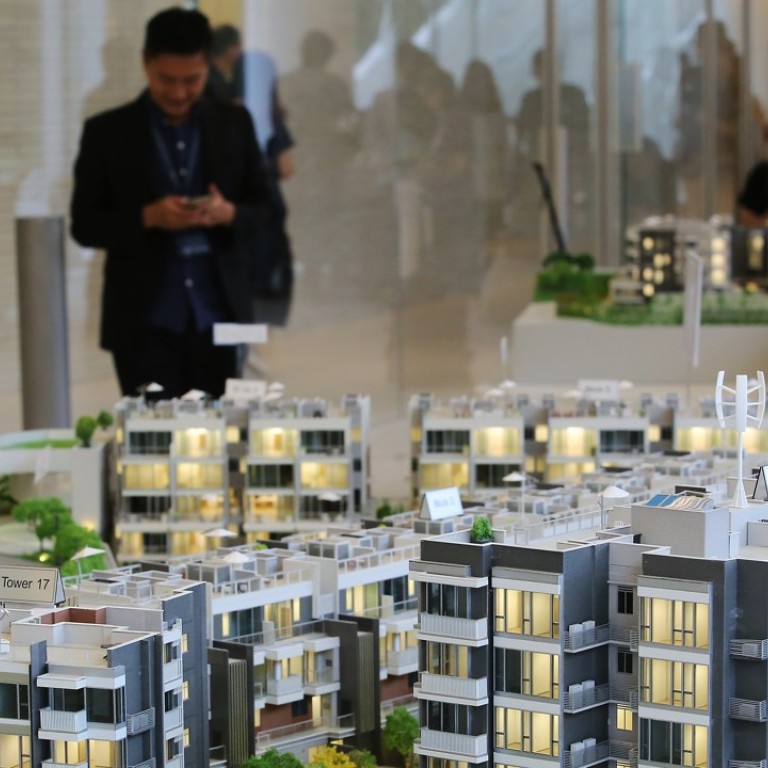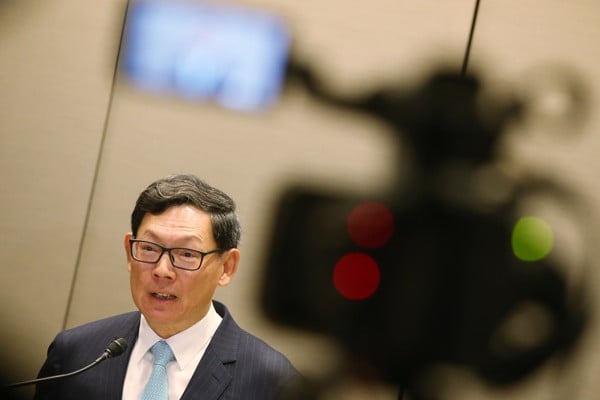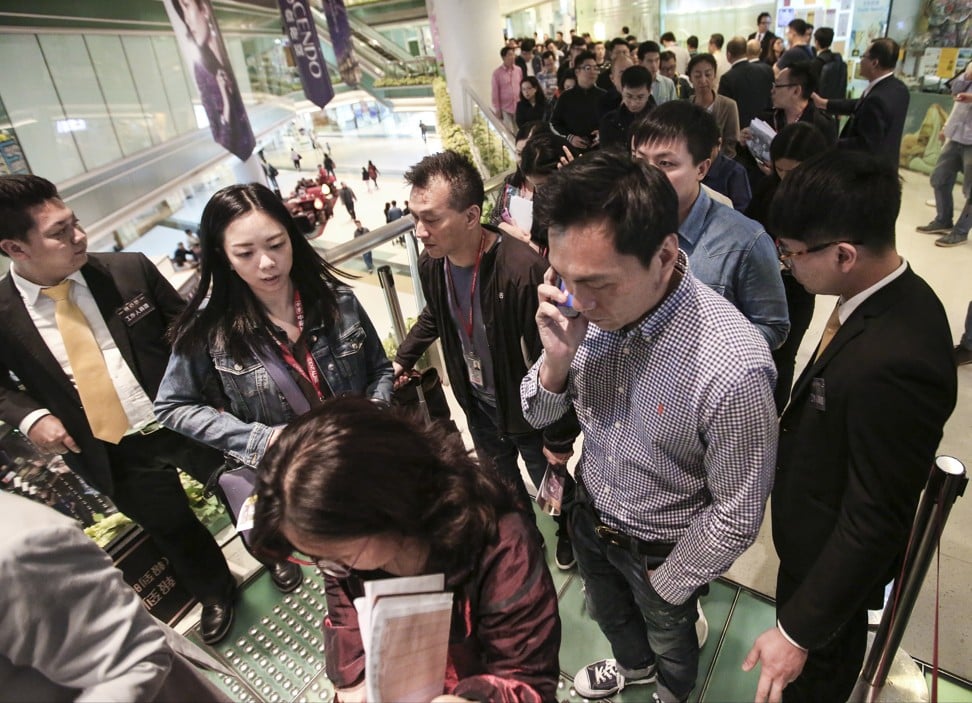
Hong Kong tightens screw on borrowers of multiple loans as property market overheats
Hong Kong has announced the second set of mortgage-tightening measures in a week to cool a property market that has broken records, taking aim at borrowers with multiple loans and whose income sources come from outside the city in an attempt to reduce banks’ credit risks.
The move comes as the city’s end-March property prices and transactions surpassed a September 2015 peak by 4.5 per cent, the HKMA said, citing data by the Rating & Valuation Department. The city’s de facto central bank has unveiled eight rounds of tightening measures since 2014.

The authorities have focused on using prudential measures such as caps on loans, and adjusting the debt-servicing ratios and stamp duties. Residential mortgage loans totaled HK$1.119 trillion (US$144 billion) at the end of 2016, equivalent to 5 per cent of the banking system’s assets, a level that is considered low by international standards, according to Fitch Ratings.
Housing affordability is one of the gravest issues facing Hong Kong’s incoming chief executive Carrie Lam Cheng Yuet-ngor, who has pledged to take strong measures to address the issue. The government in November 2015 imposed a 15 per cent stamp duty on second-time borrowers, while the HKMA last week ordered banks to reduce loans to developers.
The amount of loans allowed for residential property less than HK$10 million in value will be cut to 50 per cent of their value for borrowers with outstanding mortgages from 60 per cent, while lending to homes exceeding HK$10 million will be cut to 40 per cent from 50 per cent with immediate effect.
Companies that are buying homes for corporate use will have their loan amounts cut to 40 per cent of value, from 50 per cent.

“The government wants to send a signal to the market that further actions will be taken to cool the red-hot market,” said Alvin Cheung Chi-wai, associate director at Prudential Brokerage. “The rule has little impact on cash-rich investors who need not borrow too heavily when they buy their second or third homes. But those who cannot afford their first homes will not be hit.”
For car parks, commercial or industrial properties, the allowable loans are cut to 30 per cent, from 40 per cent, the HKMA said.
A distinction has also been made on borrowers who mostly derive their income from outside Hong Kong, cutting their debt servicing ratio by 10 percentage points to 40 per cent for first-time borrowers, and 30 per cent for borrowers with prior mortgages.
For corporate purchases, the ratios are cut by 10 percentage points to a flat 30 per cent for first-time borrowers as well as those with prior mortgages.
The move is likely to deter property developers from slapping high price tags on properties, said Cheung.
“Elevated property prices are a major source of risk for Hong Kong’s banks, and have been for a number of years,” said Sherry Zhang an analyst at Moody’s Investors Services, who estimates that bank lending to construction, property development and investment accounted for 24 per cent of the city’s loans at the end of 2016.
“While most of the loans are to large developers with good credit ratings and there are strict rules on the types of mortgages banks can offer, what is a concern is the fact that developers also lend via their financing vehicles to individuals who are unable to get mortgages from the banks,” she said. “This was something the HKMA was trying to address with last week’s tightening measures, and these new measures are a continuation of that.”
Prospective home buyers are likely to become more cautious and take their time in digesting how the new rules affect them, said Ricacorp Properties in a statement.
Already, signs of an immediate impact are noticeable as the number of viewing appointments have already dropped 7.6 per cent to 1,455 this weekend, Ricacorp said.
Still, first-time borrowers made up 90 per cent of overall property market transactions in recent months, according to an estimate by JLL’s senior research manager Ingrid Chen.
“Investors who are still eager to enter the market, even after the stamp duty and the latest tightening, are generally cash-rich, and are unlikely to be too affected” by the latest rules, she said.
With additional reporting by Alun John.


